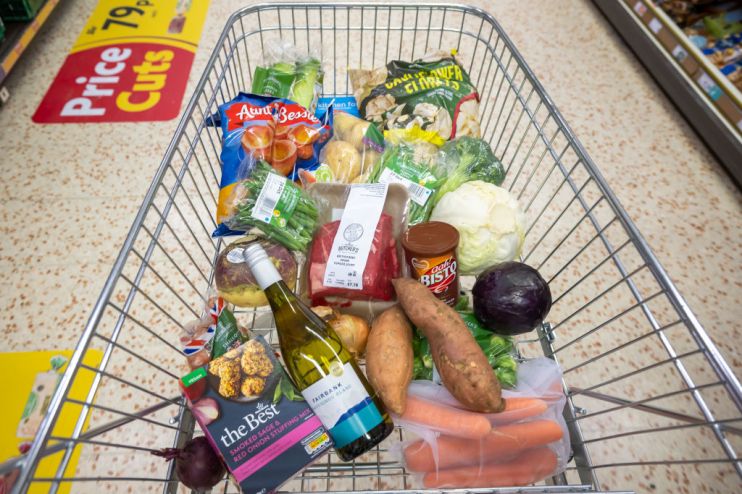Grocery inflation dips for first time in almost two years but ‘long way down’ for price increases

Grocery price inflation has dipped for the first time in almost two years while the price of a family Christmas dinner sits at an eye-watering £31.
The rampant pace of price increases let up slightly this month, dropping 0.1 percentage points – the first dip in 21 months.
Four-week inflation now sits at 14.6 per cent, according to the freshly published data from insights firm Kantar.
However, there is a “long way down” for grocery inflation, with shoppers having to spend an extra £60 this December to buy the same items they did last year, according to Kantar head of retail insight Fraser McKevitt.
The festive season is set to mark the biggest ever month for take-home grocery sales, due to a cocktail of inflation and Christmas purchases. This means December will see sales surpass a £12bn mark for the first time.
Sales of mince pies, Christmas puddings and Christmas confectionery have sunk compared to 2021 so far, as shoppers hold off on festive purchases in order to budget ahead of Christmas Day,.
“We’re seeing yet more evidence of the coping strategies shoppers are adopting to mitigate rising costs,” McKevitt explained.
Own-label sales have shot up 11.7 per cent year on year while the cheapest value lines have leapt 46 per cent.
However, shoppers “still want to find room for treats at this time of year,” with growth of premium own label sales also propelled up six per cent to £461m in November.
Shoppers have also been flocking to the supermarkets more frequently over the past three months, with households going grocery shopping more than 48 times in the period.
“This is largely about the gradual return to pre-Covid behaviours – something we’ve been following for many months,” McKevitt added.
However, a World Cup boost has yet to be seen across the country’s supermarkets, as football fans have rushed to pubs to watch England matches.
Over the past three months, discount supermarkets continued to enjoy momentum, with Lidl’s market share hitting a record 7.4 per cent and Aldi reaching 9.3 per cent.
Lidl’s year on year sales had elevated by 22 per cent while Aldi has also snagged 24.4 per cent sales growth over the past year.
Asda, which has recently launched its own value line of Just Essentials, grew ahead of the sector, with sales up six per cent.